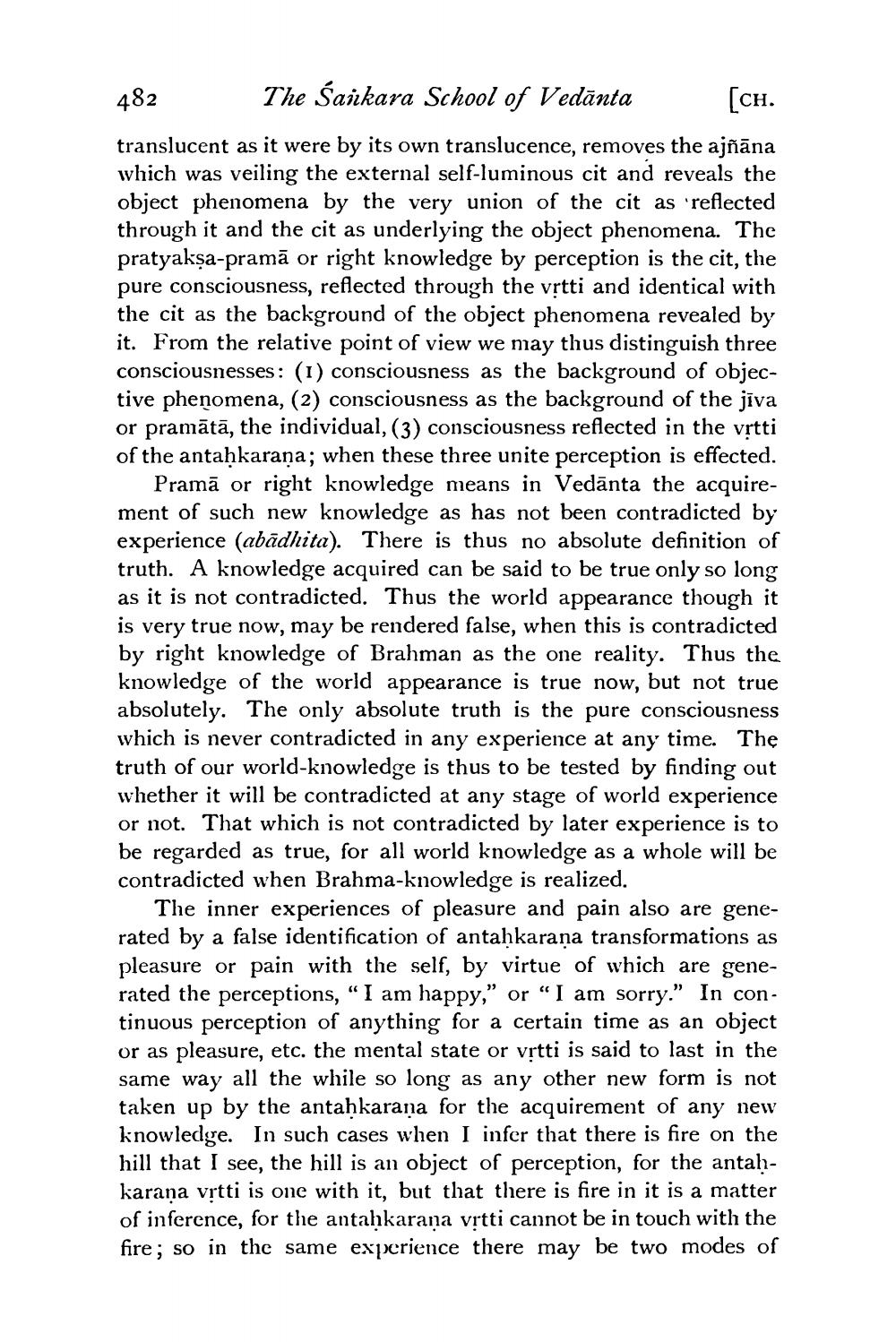________________
482
The Sankara School of Vedanta
[CH.
translucent as it were by its own translucence, removes the ajñāna which was veiling the external self-luminous cit and reveals the object phenomena by the very union of the cit as 'reflected through it and the cit as underlying the object phenomena. The pratyakṣa-pramā or right knowledge by perception is the cit, the pure consciousness, reflected through the vṛtti and identical with the cit as the background of the object phenomena revealed by it. From the relative point of view we may thus distinguish three consciousnesses: (1) consciousness as the background of objective phenomena, (2) consciousness as the background of the jiva or pramātā, the individual, (3) consciousness reflected in the vṛtti of the antaḥkarana; when these three unite perception is effected.
Pramā or right knowledge means in Vedānta the acquirement of such new knowledge as has not been contradicted by experience (abadhita). There is thus no absolute definition of truth. A knowledge acquired can be said to be true only so long as it is not contradicted. Thus the world appearance though it is very true now, may be rendered false, when this is contradicted by right knowledge of Brahman as the one reality. Thus the knowledge of the world appearance is true now, but not true absolutely. The only absolute truth is the pure consciousness which is never contradicted in any experience at any time. The truth of our world-knowledge is thus to be tested by finding out whether it will be contradicted at any stage of world experience or not. That which is not contradicted by later experience is to be regarded as true, for all world knowledge as a whole will be contradicted when Brahma-knowledge is realized.
The inner experiences of pleasure and pain also are generated by a false identification of antaḥkaraṇa transformations as pleasure or pain with the self, by virtue of which are generated the perceptions, "I am happy," or "I am sorry." In continuous perception of anything for a certain time as an object or as pleasure, etc. the mental state or vṛtti is said to last in the same way all the while so long as any other new form is not taken up by the antaḥkarana for the acquirement of any new knowledge. In such cases when I infer that there is fire on the hill that I see, the hill is an object of perception, for the antaḥkarana vṛtti is one with it, but that there is fire in it is a matter of inference, for the antaḥkarana vṛtti cannot be in touch with the fire; so in the same experience there may be two modes of




